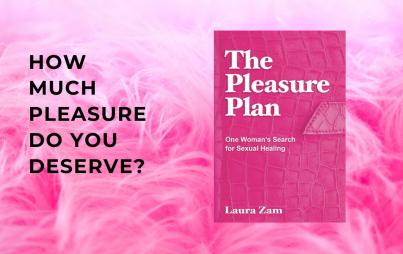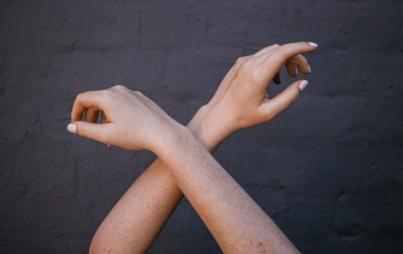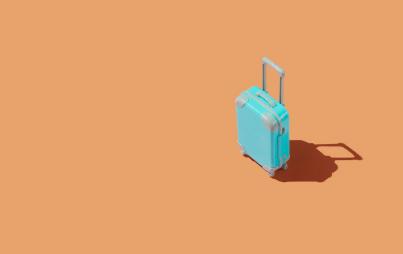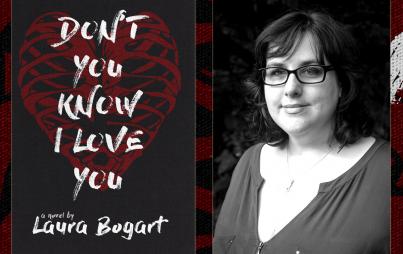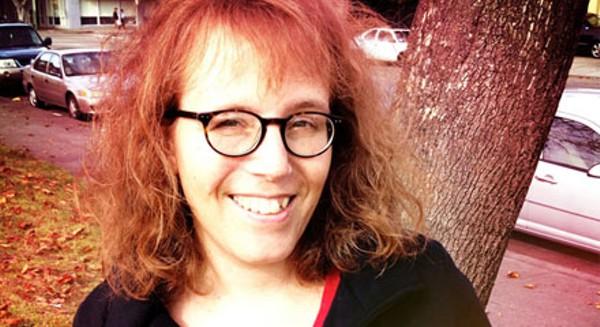
The left is often accused of being totalitarian, exclusionary, and intolerant. The most recent version of this argument was made by Jonathan Chait in a high-profile piece for New York Magazine. Similar concerns were raised by Michelle Goldberg at The Nation last year in a piece titled "Feminism's Toxic Twitter Wars."
Mainstream articles about the dangers of political correctness and left intolerance can often seem interested in generating heat rather than light—in demonstrating that the left is broken, rather than in thinking about ways to fix things. They also tend to ignore, or sideline, theorists and writers who have attempted to think through these problems in favor of horror-story anecdotes and gleeful denunciation (this was especially true in Chait's piece).
One such writer missing from much online discussion is trans-activist and theorist Julia Serano. Her book Excluded: Making Feminist and Queer Movements More Inclusive, published last year, focuses directly on the problem of intolerance in left spaces, and on what can be done to make left political coalitions more welcoming and powerful. Here, she shares her insights on the "extremely messy and complicated questions" surrounding inclusion in social activism.
Often problems on the left, or exclusion on the left, is framed in terms of "P.C." or political correctness, as Jonathan Chait does in his piece at The New Yorker. Is that a useful way to think about exclusion in left spaces?
I am definitely not a fan of framing these matters in terms of "political correctness," as that label is only ever used to target the perspectives of people who have historically been disenfranchised.
In most spaces—whether it be mainstream culture, or within specific communities or activist groups—there is usually some kind of unwritten code regarding what expressions are deemed permissible and which are deemed to be beyond the pale. In other words, every space has its own concept of "correctness." And these codes can vary significantly from space to space. As one of many possible examples, in mainstream culture, it has generally been considered acceptable for people to openly dismiss or delegitimize transgender people and perspectives, whereas in certain activist circles these same acts might be considered reprehensible.
The term "political correctness" is a pejorative that people who are (in some way) a part of the majority or status quo tend to wield against codes of conduct that are championed by minority or marginalized groups.
Most people who rally against "political correctness" seem solely concerned with the potential harm of what they perceive as "censoring" (e.g., when a marginalized group claims that certain language or beliefs should be considered beyond the pale), while giving little to no consideration to the potential harm that can incur when language or beliefs that injure or erase marginalized groups are considered to be socially acceptable. This framing favors the concerns of the dominant majority (who feel like their actions are now being "policed") over those of the marginalized minority (who see themselves as simply challenging the countless injustices that they face on a daily basis).
The one-sidedness of these arguments is readily apparent. For instance, Chait portrays "political correctness" as a threat to free speech, but then he berates people for staging non-violent protests and for using a particular hashtag on Twitter. He finds it troubling that some people will dismiss his opinion because he is white and male, but then spends most of the article dismissing the perspectives of various minority groups who feel delegitimized because of their identities. I too am concerned about some of the incidents Chait details, but he undermines his own argument when he lists these alongside relatively mundane tactics that countless (now well-regarded) activist movements have undertaken in the past. Chait's article reads like a laundry list of relatively new notions that he does not understand or feels threatened by, rather than a sincere attempt to create more civil or productive political discourse.
The problem is not nearly as clear-cut as self-described opponents of "political correctness" make it out to be. This is not a debate about free speech versus repression of free speech. Rather, it is about where we as a society draw the line(s) regarding what counts as ethical or civil behavior.
Is it acceptable to make sexist or racist comments in the workplace? If not, what counts as sexism or racism? If I generically refer to my co-workers as "you guys," is that sexist? Or if I insist that Barack Obama is not a "real American," does that count as racism? Or are we only concerned with more blatant or explicit slurs against these groups? And if so, what words or sentiments count as legitimate slurs?
And what about other identities, or bodies, or ways of being—should they be protected too? If so, which ones? And to what extent? Where exactly does your right to free speech end and my right to go to work every day without being verbally harassed or intimidated begin? And if I do not like where that line is drawn, what actions am I allowed to take to push the line in my preferred direction? Am I allowed to boycott, or picket, or engage in sit-ins, or write letters to the editor, or leave comments in the comment section? What hashtags represent "good forward-thinking activism" and which ones constitute "bad repressive activism"?
These are extremely messy and complicated questions. And I don't have any precise answers to them. And even if I did, I know for sure that other activists would inevitably disagree with me.
What I do know is this: A sincere discussion about these issues must begin with the acknowledgment that injustices can occur via the expression of certain language and beliefs, but they can also occur via the censoring of certain language and beliefs. And that some "codes of conduct" (whether written or unwritten) are necessary to create spaces where people feel safe to be who they are, but also, that the notion of "safe space" can be (and has been) used as a tool to marginalize or exclude people who disagree with, or are different from, the majority in some way.
Freddie deBoer argued that Chait was right at least to the extent that identity politics can lead to attacks on bullying in left spaces based around using or not using the correct language, or having or not having the correct identity. Have you found that to be the case?
Yes, this definitely does happen. Sometimes, the unwritten codes of conduct in certain activist or progressive spaces may be especially rigorous, and when someone unknowingly transgresses these unwritten codes, they may be fiercely condemned (often with multiple people "piling on" the condemnation). While I understand the rationale behind such condemnations (as they are intended to make the space safe for certain marginalized populations), they can have the effect of driving away people who are new to activism, many of whom are minorities and marginalized themselves.
Another under-acknowledged problem is that inflexible or rigorously-enforced codes of conduct often end up pitting marginalized individuals against one another. For example, in many activist spaces these days, you will likely be reprimanded if you use the word "tranny," as many younger trans people view this word as a slur that demeans them. But then, what happens to trans people of the previous generation who have long used that term as an identity label? Similarly, some trans activists have claimed that the word "bisexual" reinforces the gender binary (and is therefore oppressive to trans people). But then, what happens to people who identify as bisexual and use that word as a focal point for their activism?
To be clear, I am not picking on trans activists here—I chose these two examples because they are ones that I have written about extensively in the past, and that others will likely view me as being justified in citing since I am transgender myself. But I can assure you that countless similar examples abound throughout contemporary activism. The point is that claims that particular words or actions are always "bad" (under every circumstance, regardless of context), and should be banished from activist spaces and society more generally, often requires us to pick and choose between different (or similarly) marginalized groups.
When I first began participating in feminist and queer spaces in the early '00s, I was routinely confronted by accusations that trans women "possess male privilege," "appropriate women's bodies and experiences," "parody women's oppression," "reinforce patriarchal and heteronormative stereotypes of women," "infiltrate women's spaces," "trigger women who have been raped," and metaphorically "rape women's bodies." All of these memes were invoked in an attempt to invalidate or exclude me on the basis of my identity or imagined motives, not because of anything that I actually did or said in those spaces.
In Excluded, I chronicle how similar accusations have been used repeatedly against other minority/marginalized groups within activist settings over the last half-century. There is an obvious logic to it: If we (as activists) are opposed to institutionalized oppression, then people whose identities or expressions appear to "reinforce" those oppressive systems (however we define that) suddenly become fair game to ostracize. And within activist settings, there are few things worse than being characterized (or mischaracterized) as being "an oppressor," or as "reinforcing oppression," or as "undermining the movement."
I can understand why some activists may be disinclined to have this conversation. If we admit that activist language is sometimes misused to malign others within our own communities, doesn't that potentially give ammunition to the truly oppressive people who can now dismiss our legitimate critiques of oppression within society at large?
Well, I'm sure that some people will misappropriate what I (and others) have to say toward that end. And I will continue to protest against such misappropriations. But the alternative—allowing or ignoring calls to exclude certain "types" of people from activist movements that they themselves have a stake in—will only ever lead to far smaller activist movements, with far more narrow and distorted agendas.
DeBoer seems to suggest that there is no way to handle these kinds of incidents; he points to a number of examples where people were shell-shocked or reduced to tears, and he says that basically there is no way to address that on the left now. (He elaborates on that here.) Is that true? Or if not, what approach do you take to dealing with this kind of bullying or call-out culture in queer and feminist spaces?
I believe that, in order to address these problems, we need to first understand how we got here. There is a long history of activist movements ignoring minority voices within their ranks. Over the years, a set of guidelines has emerged in an attempt to make these movements more inclusive and intersectional. Many of us who spend significant time in activist settings are familiar with these guidelines: Allow marginalized groups to have an actual voice in your movement. If you want to be a righteous ally, then you should call out instances of oppression that target those marginalized groups (otherwise, the space will become an inhospitable environment for them). If someone accuses you of being oppressive in some way, don't deny it or defend yourself, just take responsibility for your actions. If the person doing the "calling out" seems inordinately angry or aggressive, you shouldn't complain about that, because that would be a "tone argument" that derails the conversation. Many activists believe that only members of a particular identity are able to speak with authority about certain issues (this is sometimes referred to as a reverse discourse). So if you are not a member of that identity group, and you claim that a "call out" is unfair or an overreach, you will most likely be viewed as speaking from a position of ignorance and/or exercising your privilege over others.
Every single one of these guidelines is well intentioned, and they are all things that I have argued for myself at one time or another. But taken together, they do create a situation (which deBoer seems to be describing) where there is not an effective way to intervene when situations do get out of hand or become unproductive. This leads many of us to remain silent about such incidents when they occur for fear of being accused of "siding with the oppressor" or "throwing around our privilege."
While I think that the aforementioned guidelines are often useful when dealing with people who are legitimate bad actors or repeat offenders, they can be counterproductive within activist settings where all participants are open minded and genuinely concerned about social justice for all people, and where marginalized individuals who are socially situated in different ways come to different conclusions as to how best to challenge the oppression they face.
Toward the end of Excluded, I offer a number of suggestions that might help mitigate some of these problems. One of these suggestions is to dismantle the "righteous infallible activist" versus "evil ignorant oppressor" binary that many activists (including myself in the distant past) seem to embrace.
We often associate activism with taking steadfast and strident positions. But this can lead us to view others who espouse dissenting opinions as either "ignorant" and/or "oppressive"—thus creating an "us versus them" mentality. But if we accept the fact that 1) we all have much to learn from other activists, and 2) that even the most well-informed and dedicated activists will oftentimes disagree with one another, then we may be able to alleviate much of the intransigence that often occurs on both sides of "call outs." And hopefully, this might help foster activist spaces and movements that are simultaneously inclusive of minority voices and accepting of difference more generally.
Admittedly, this is easier said than done. But I have found this approach to be fruitful in my own activism.
DeBoer also argues that most of the bad actors in left spaces are privileged people, especially white men, who have less stake in actually accomplishing anything and are therefore more likely to focus on stirring up controversy. Is that your experience? Or is it useful to see these problems in terms of identity and privilege in that way?
I have to say that deBoer's theory that some people are "accelerants" (i.e., people with privilege who pile on and purposely fan the flames during these incidents) sounds compelling. But I have not personally carried out the types of analysis that deBoer has, so I don't feel like I can confirm or deny that hypothesis.
But I do feel that there are multiple other factors that likely (or additionally) contribute to this phenomenon.
I really do believe that many activists who participate in unproductive or misguided "call outs" are well intentioned. Opponents of "political correctness" or "call-out culture" often portray these phenomena as being driven by selfishness or over-sensitivity. But from my vantage point, I see people who are genuinely concerned about other marginalized groups and who are sincerely trying to be good intersectional activists. And they will read a tweet or blog post by an activist claiming that "X" (e.g., a word, or action, or media depiction, or some person) contributes to the oppression of group "Y." And subsequently, when they are confronted with X, they will call it out in support of group Y. In some cases, these will be productive attempts to challenge oppression, while in other cases, they may be misguided or unfair smears of other people or ideas. I feel that it is important to acknowledge that, even when misguided, many of these occurrences were originally intended to create positive change in the world.
Still other factors likely contribute. Katherine Cross has suggested that we (as a society) tend to view what happens online (where many of these outbreaks occur) as being "not real," and therefore, not subject to the norms of civil discourse. It makes sense that such a mindset might help fuel such problems within social media settings.
And I would be remiss if I didn't mention that—whether it's a part of American culture or human nature more generally—many people (perhaps all of us, to varying extents) sometimes experience pleasure or entertainment when we witness people who we do not know, or do not like, being "ridiculed," "brought down," or "ruined." This tendency is evident in reality TV and many forms of comedy, and I can't help but wonder whether it sometimes plays a role in these situations as well.
Anyway, whatever the causes, I think that it is important for those of us who are committed to social justice and activism to seek out more productive ways to make activist settings truly inclusive and accepting of difference.

